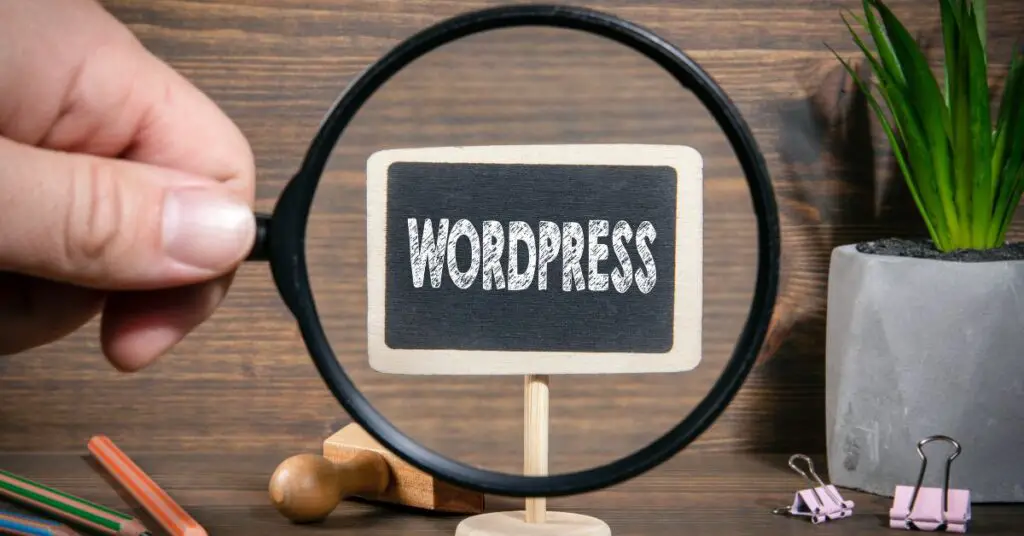As an Amazon affiliate, I may earn from qualifying purchases. Please read our Disclaimer and Privacy Policy.
Are you curious about how to become a life coach over 50? I suspect many people interested in becoming life coaches are concerned about having a master’s degree, or some other type of coach-specific training.
While you often don’t need a formal degree or specific educational background to become a life coach, certification can boost your credibility.
Of course, a bachelor’s degree in psychology, social work, or counseling can also offer more credibility than someone without that educational background.
Many people over 50 bring valuable life experiences, amazing communication skills, and a desire to inspire others to reach their full potential.
In this post, I’ll cover nine success tips on how to become a life coach over 50.
I’ll walk you through 15 different types of life coach practitioners, along with information on how to get specialized training, and tips on how to successfully launch your practice.
Disclaimer:
The information provided on AgeingUp.com about life coaching certification programs is for general informational purposes only. While we strive to keep the content accurate and up-to-date, we can’t guarantee the current status, availability, or outcomes of any courses listed.
Please do your own research, as AgeingUp.com does not endorse or assume responsibility for any decisions you make based on this list. Always check directly with the course providers for the latest details!

What Kind of Life Coach Do You Want To Be?
Life coaching covers a wide range of niches. Each niche, of course, helps clients achieve specific goals or overcome particular challenges.
I’ve noted many different options below, but if you need more help learning how pick a life coaching niche, you should read: How to Pick a Life-Coaching Niche You Will Love
Career Coaching
Career coaches can help people who are transitioning between jobs. They can also provide advice in career advancement along with finding purpose in work itself.
As a career coach, your clients could be recent graduates, professionals facing burnout, or people considering a major career change.
Training requirements
Although you don’t need specific certification to become a career coach, there are options and educational paths you may want to consider. These include:
- International Coaching Federation (ICF)
- Certified Career Services Provider (CCSP)
- Board Certified Coach (BCC)
I’ve provided more information on these organizations later in the post.
Health and Wellness Coaching
Health and wellness coaches work with clients to help them achieve healthier lifestyles. They can play a pivotal role in helping people overcome obstacles to their general wellness while helping to improve overall well-being.
Training requirements
The key requirements to become a health and wellness coach include:
- minimum bachelor’s degree in fields like health science, nutrition, psychology, exercise science, etc.
- master’s degree
- nationally recognized certification from the National Board for Health and Wellness Coaching and the International Coach Federation
- you may need to complete training programs that meet the standards set by recognized bodies
- continuing education
- practical experience offered by many coaching programs
- communication and interpersonal skills

Relationship Coaching
Relationship coaches help improve personal relationships through communication and conflict-resolution. Clients could include couples, individuals wanting to improve relationships, or people seeking to develop stronger connections with loved ones.
Training requirements
- a specific degree may not be required, however many relationship coaches have a background in psychology, counseling, social work, or a related field.
- bachelor’s degree
- advanced degrees
- coaching certifications
- training from accredited coaching programs
- practical experience
Executive and Leadership Coaching
An executive and leadership coach helps people improve their leadership skills. They may work directly with a company as a consultant, or work on an individual basis with people.
Executive and leadership coaches work on honing core leadership abilities, improving communication skills, and building emotional intelligence.
Training requirements
- bachelor’s degree
- master’s degree
- coaching certifications
- accredited training programs
Financial Coaching
A financial coach is someone who can help with personal financial management. This could include budgeting, strategies for debt reduction and building financial literacy.
The clients of a financial coach could include individuals wanting to improve their financial situation.
Training requirements
- you should have a background in finance, accounting, business, economics, or related field
- bachelor’s degree in one of these areas
- advanced degrees with a focus on finance or a master’s in financial planning
- financial coaching certifications
Personal Development and Self-Improvement Coaching
This particular coaching niche focuses on helping people build confidence with an aim to personal growth. People hire these coaches for a variety of reasons including:
- clarity and goal setting
- building confidence and self-esteem
- improving productivity and time management
- learning how to develop a growth mindset
- improving relationships and social skills
- navigating major life transitions
- achieving work-life balance
- enhancing emotional intelligence
- pursuing personal passions and hobbies
- enhancing motivation and accountability
- and a wide range of other reasons
Training requirements
- a specific degree is not required
- bachelor’s degree
- advanced degrees
- coaching certification

Spiritual Coach
A spirital coach may help people find deeper meaning and purpose in life. They can help people connect with their inner selves to achieve their higher purpose in life.
Training requirements
- a specific degree is not required
- many spiritual coaches have a background in psychology, counselling, spirituality, or some other similar practice
- coaching certifications (not mandatory)
- accredited training
- practical experience
Parenting and Family Coaching
A parenting or family coach helps parents with parenting strategies, family dynamics, and child development.
This type of coach addresses challenges related to parenting and work to help improve family dynamics in a number of ways.
Training requirements
- specific degrees are not always required, many parenting coaches have a background in education, psychology, social work, or related fields
- coaching certifications
- accredited training programs
Recovery and Addiction Coaching
The purpose of recovery and addication coaches is to support individuals in recovery from addiction. They can also help guide the loved ones of those in recovery.
Training requirements
- background in psychology, social work, counseling, or related fields
- advanced degree
- addiction coaching certifications like those offered by Certified Recovery Coach (CRC)
Life Transitions Coaching
Life transitions coaches help clients navigate major life transitions. This could include retirement, divorce, relocation, job loss, or empty nesting (among others).
Training requirements
- specific degrees are not required
- many life coaches have backgrounds in psychology, counseling, social work, etc.
- advanced degrees
- coaching certifications
- accredited coaching programs
Confidence and Self-Esteem Coaching
A confidence coach helps people build their self-confidence while working towards a positive self-image.
Training requirements
- a specific degree is not always required
- some coaches pursue advanced degrees
- coaching certifications
- accredited coaching programs
- practical experiencew
Productivity and Time Management Coaching
This type of coach is great at working with people on productivity skills and time management.
Training requirements
- a specific degree isn’t mandatory
- bachelor’s degree
- advanced degrees
- certification
Business and Entrepreneur Coaching
A business and entrepreneur coach helps guide entrepreneurs in growing their business. They could help individuals with business plans while mentoring them to achieve profesional goals.
Training requirements
- specific degree not always required
- bachelor’s degree
- advanced degree
- coaching certification
- experience
- soft skill development
- business skills
Youth or Young Adult Coaching
Youth or young adult coaches focus on supporting individuals through unique challengs and opportunities. For example, this type of coach could help a young person identify their strengths, overcome self-doubt, prepare for college, etc.
Training requirements
- background in education, psychology, counseling or social work
- advanced degrees in counseling, etc.
- coaching certifications
- practical experience
- ongoing learning

Retirement and Aging Coaching
It seems like everyone is eager to retire, until the time comes. This type of coach can help with the fears and myths of retirement.
For example, a coach could help an aging individual (or retired person) find new meaning in their lives, help them with budgeting, explore great new hobbies, and so on.
Training requirements
- a specific degree is not always required
- background in psychology, social work, counseling, human services, etc.
- advanced degree
- coaching certification
- accredited programs
- practical experience
How to Pick a Coaching Niche
Before you become a personal life coach you have to determine where your skills will be of best use. Steps you can take to decide which type of life coach you want to become include:
- assessing your own life experience and passions
- honestly evaluate your skills and strengths
- research establish niches
- identify your ideal client
- consider your coaching style and approach
- research certification and training requirements
- consider your long-term goals
- identify a specific problem you want to solve
- talk to other coaches
- experiment with a broad focus before specializing
If you’ve asked yourself the question, “How can I become a life coach over 50?” you may already know what type of professional life coach you’d like to become. The next question should be, “How do I get started?”
Step 1: Get Certified
According to an article published by Bonsai, a legal resource for businesses, the job isn’t listed in the Bureau of Labor Statistics (BLS).
While no degree is technically required to run a coaching business, you still need to prove that you have the skills and experience to coach people. It’s a good idea to choose a reputable life coach certification program to help you gain authority in the field.
International Coaching Federation (ICF)
The ICF is considered one of the most recommended certifications a coach can get.
In order become a certified life coach through ICF, you have to meet specific standards and requirements.
The three credentials you can get include the Associate Certified Coach (ACC), the Professional Certified Coach (PCC) and the Master Certified Coach (MCC).
Their website offers a link to find ICF-accredited education and is a good place to start.
Certified Career Services Provider (CCSP)
CCSP is a credential designed for career coaches who have completed training through NCDA’s Facilitating Career Development course. There are no specific educational or work-related experience requirements to obtain the certification.
Once you’ve successfully passed the FCD course, you can then apply. The application process includes providing demographic information and responding to scenarios in the assessment portion of the application.
For more information, contact the National Career Development Association.
Board Certified Coach (BCC)
Becoming a board certified coach is a great way to show the public that you have the skills and experience needed to be of service to a paying client.
STEP 2: Understand the Key Skills Required for Life Coaches Over 50
It’s no secret that your past experiences (whether work or life-related) combined with your education will go a long way in ensuring a successful career.
As mentioned earier, it’s always a good idea to refine your skills and build your authority in your field by becoming certified. Through certification courses you’ll learn essential communication and coaching skills.
For example, you’ll learn the importance of active listening, empathy, and how to ask powerful questions.
Through certification courses, you’ll learn the importance of setting professional goals and managing time efficiently.
Even if you decide not to go through a certification process, it’s important to consider setting goals to ensure a successful coaching business.
STEP 3: Research The Top Life Coach Certification Programs
I know I mentioned a few certification programs earlier in this post, but it’s worth nothing again.
You’ll find a list of the best life coach certification programs, including options from the International Coaching Federation below.
Some of the accredited life coach certification programs offered at ICF include:
- Institute for Professional Excellence in Coaching (iPEC)
- Co-Active Training Institute (CTI)
- Center for Credentialing and Education (CCE)
- Coaching Training Alliance (CTA)
Other well-recognized life coach certification programs include the following:
- Academy of Creative Coaching (ACC)
- Health Coach Institute (HCI)
- Integrative Wellness Academy (IWA)
- Life Purpose Institute
- Tony Robbins’ Core 100 Training
The programs noted above all vary in duration, cost, and specialization.
STEP 4: Create a Business Plan
Having a business plan forces you to think through what you want to achieve and how you’ll get there. Think of it like a roadmap for turning your idea into a reality.
Having a business plan will come in handy if you need to approach investors or lenders.
They will want to see a well-prepared business plan so that they know your business is viable, financially sound, and worth the investment.
Visit the Small Business Administration for a free, step-by-step guide and a Business Plan template to get started.
STEP 5: Build a Strong Online Presence
Having a strong online presence if important.
Whether it’s TikTok, FaceBook, Instagram, LinkedIn, or any other platform, building a following is just good business practice.
Once you’ve established a following (it doesn’t have to be thousands of followers!), you can lure them to your website, show them through videos what you offer, and turn those followers into paying customers.
STEP 6: Create a Website With WordPress.org
These days, everyone needs a website, especially if they’re in business. I won’t go into a lot of detail here, but I have written a blog post called How Long Does It Take To Learn WordPress.
This is a good place to get started.
STEP 7: Learn How to Use Keywords to Attract Your Audience
If you read the blog post I’ve linked above, you’ll get an idea of what it means to use keywords to attract your audience.
The short answer is that you need to find long-tailed keywords that have low competition but high search results.
Don’t panic!
This isn’t something you have to do yourself. I use RANKIQ to get all the keywords I need. It’s the best keyword tool in the business and it’s very affordable!
Read more about it here: RankIQ: 15 Best Ways for Bloggers to Dominate SEO
You have to use the right keywords in order to attract your ideal clients. Trust me, RANKIQ is one of the best and easiest to use keyword research tools around. Plus, you can sign up now for their 50% rate of just $49.00
STEP 8: Join Professional Organizations
If you haven’t already, consider joining professional organization like ICF and other coaching networks.
The benefit of joining networks is to keep you active on current trends, aware of changes to your industry standards, and so on.
Joining professional organizations is a great way to collaborate and learn from other life coaches.
STEP 9: Offer Flexible Coaching Options
You know all about online services, in-house services, and one-to-one office visits. Everyone does! As a life coach, it’s up to you to choose which of these services will most benefit your clients.
Websites templates like the ones found at Squarespace have easy-to-use registration or sign up forms for potential clients. They can pick and choose the services they want and the times that work best for them.
You can even set up a payment plan directly from your Squarespace site. Don’t forget to set up a privacy policy and terms of service on your website.
Summary
How can I become a life coach over 50?
The first thing to do is identify the niche that will serve you best. It’s important to get certified to show that you have authority in your chosen niche. You can take an online course for online life coach certification.
Remember that some niches may have specific requirements (educational) that you’ll need to follow. If becoming a life coach is a dream of yours, there’s a very good chance you’ll go far.
Still not sure, read this blog post complete with a questionnaire to help you narrow down your niche choice: How to Pick a Life Coaching Niche You Will Love.



